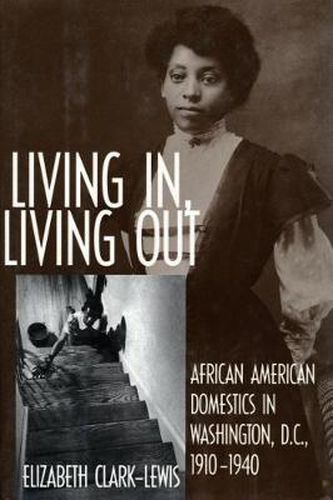Readings Newsletter
Become a Readings Member to make your shopping experience even easier.
Sign in or sign up for free!
You’re not far away from qualifying for FREE standard shipping within Australia
You’ve qualified for FREE standard shipping within Australia
The cart is loading…






This oral history portrays the lives of African American women who migrated from the rural South to work as domestic servants in Washington, DC in the early decades of the twentieth century. In Living In, Living Out Elizabeth Clark-Lewis narrates the personal experiences of eighty-one women who worked for wealthy white families. These women describe how they encountered-but never accepted-the master-servant relationship, and recount their struggles to change their status from live in servants to daily paid workers who lived out.
With candor and passion, the women interviewed tell of leaving their families and adjusting to city life up North, of being placed as live-in servants, and of the frustrations and indignities they endured as domestics. By networking on the job, at churches, and at penny savers clubs, they found ways to transform their unending servitude into an employer-employee relationship-gaining a new independence that could only be experienced by living outside of their employers’ homes. Clark-Lewis points out that their perseverance and courage not only improved their own lot but also transformed work life for succeeding generations of African American women. A series of in-depth vignettes about the later years of these women bears poignant witness to their efforts to carve out lives of fulfillment and dignity.
$9.00 standard shipping within Australia
FREE standard shipping within Australia for orders over $100.00
Express & International shipping calculated at checkout
This oral history portrays the lives of African American women who migrated from the rural South to work as domestic servants in Washington, DC in the early decades of the twentieth century. In Living In, Living Out Elizabeth Clark-Lewis narrates the personal experiences of eighty-one women who worked for wealthy white families. These women describe how they encountered-but never accepted-the master-servant relationship, and recount their struggles to change their status from live in servants to daily paid workers who lived out.
With candor and passion, the women interviewed tell of leaving their families and adjusting to city life up North, of being placed as live-in servants, and of the frustrations and indignities they endured as domestics. By networking on the job, at churches, and at penny savers clubs, they found ways to transform their unending servitude into an employer-employee relationship-gaining a new independence that could only be experienced by living outside of their employers’ homes. Clark-Lewis points out that their perseverance and courage not only improved their own lot but also transformed work life for succeeding generations of African American women. A series of in-depth vignettes about the later years of these women bears poignant witness to their efforts to carve out lives of fulfillment and dignity.